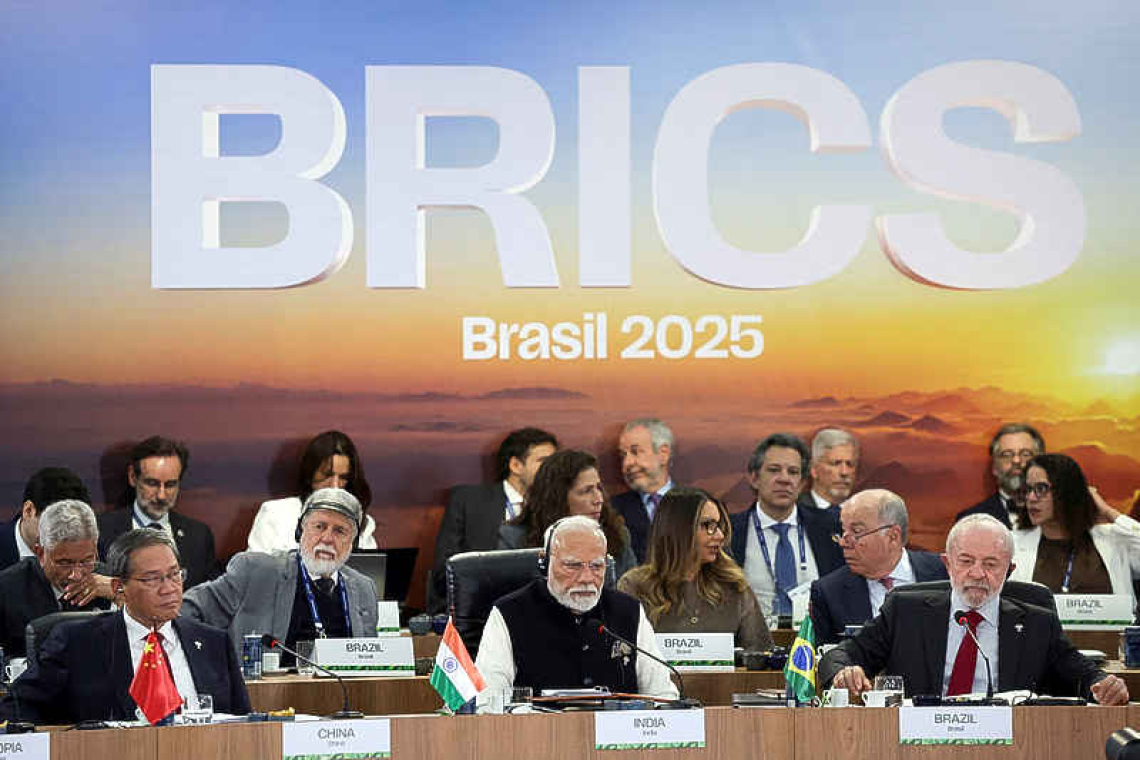RIO DE JANEIRO--Leaders of the BRICS group of developing nations condemned attacks on Iran, Gaza and Kashmir during their summit on Sunday, presenting the bloc as a defender of multilateral diplomacy while indirectly criticizing U.S. military and trade policy.
With forums such as the G7 and G20 groups of major economies hamstrung by divisions and the disruptive "America First" approach of U.S. President Donald Trump, expansion of the BRICS has opened new space for diplomatic coordination.
In his opening remarks at the meeting in Rio de Janeiro, Brazilian President Luiz Inacio Lula da Silva drew a parallel with the Cold War's Non-Aligned Movement, a group of developing nations that resisted joining either side of a polarized global order.
"BRICS is the heir to the Non-Aligned Movement," Lula told leaders. "With multilateralism under attack, our autonomy is in check once again."
BRICS nations now represent more than half the world's population and 40% of its economic output, Lula noted in remarks on Saturday to business leaders warning of rising protectionism.
The original BRICS group gathered leaders from Brazil, Russia, India and China at its first summit in 2009. The bloc later added South Africa and last year included Egypt, Ethiopia, Indonesia, Iran, Saudi Arabia and the United Arab Emirates as members. This is the first summit of leaders to include Indonesia.
"The vacuum left by others ends up being filled almost instantly by the BRICS," said a Brazilian diplomat who asked not to be named. Although the G7 still concentrates vast power, the diplomat added, "it doesn't have the predominance it once did."
However, there are questions about the shared goals of an increasingly heterogeneous BRICS group, which has grown to include regional rivals along with major emerging economies.Stealing some thunder from this year's summit, Chinese President Xi Jinping chose to send his premier in his place. Russian President Vladimir Putin is attending online due to an arrest warrant from the International Criminal Court.
Still, several heads of state were gathered for discussions at Rio's Museum of Modern Art on Sunday and Monday, including Indian Prime Minister Narendra Modi and South African President Cyril Ramaphosa. More than 30 nations have expressed interest in participating in the BRICS, either as full members or partners.
Expansion of the BRICS has added diplomatic weight to the gathering, which aspires to speak for developing nations across the Global South, strengthening calls for reforming global institutions such as the United Nations Security Council and the International Monetary Fund. "If international governance does not reflect the new multipolar reality of the 21st century, it is up to BRICS to help bring it up to date," Lula said in his remarks, which highlighted the failure of U.S.-led wars in the Middle East.
In a joint statement released on Sunday afternoon, the leaders condemned military attacks against Iran's "civilian infrastructure and peaceful nuclear facilities under full safeguards of the International Atomic Energy Agency."
The group expressed "grave concern" for the Palestinian people over Israeli attacks on Gaza, and condemned what the joint statement called a "terrorist attack" in India-administered Kashmir.On trade, the joint statement warned the "indiscriminate rising in tariffs" threatens global trade, continuing the group's veiled criticism of Trump's U.S. tariff policies.







